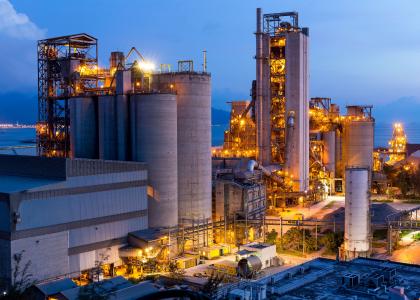Construction materials represent an intersection between buildings and industry for meeting decarbonization goals in both sectors. Manufacturer support is essential for successful efforts to label, report, and track the embodied carbon content of building materials, effect a market transformation, and support development of codes and standards for building materials.
ACEEE engaged key materials manufacturers and trade associations (i.e., steel, cement, wood products, insulation, chemicals, aluminum), along with stakeholders from the buildings and codes/standards communities to propose a market transformation approach for embodied carbon that includes its characterization, reporting, and procurement. Hurdles to overcome, in advancing the greater use of low-carbon materials and promoting market transformation, include strengthening the underlying knowledge infrastructure, ensuring robust industrial commitments, creating supportive government policy, economic incentives, codes, and standards, and advancing technology innovations.
In making the business case for low-carbon material production, we present a rationale for change and describe a pathway toward market transformation. These findings were presented at the 2022 Buildings Summer Study held in Asilomar, CA.






